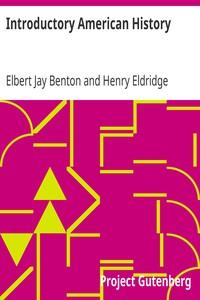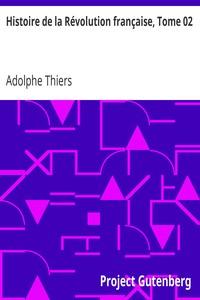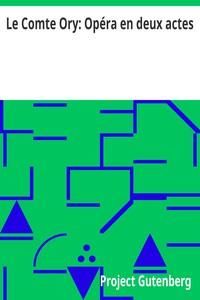Read this ebook for free! No credit card needed, absolutely nothing to pay.
Words: 67778 in 23 pages
This is an ebook sharing website. You can read the uploaded ebooks for free here. No credit cards needed, nothing to pay. If you want to own a digital copy of the ebook, or want to read offline with your favorite ebook-reader, then you can choose to buy and download the ebook.


: Introductory American History by Benton Elbert Jay Bourne Henry Eldridge - United States History Children's History
CHAPTER
REFERENCES FOR TEACHERS
INDEX AND PRONOUNCING VOCABULARY
INTRODUCTORY AMERICAN HISTORY
THE SCATTERED CHILDREN OF EUROPE
THE EMIGRANT AND WHAT HE BRINGS TO AMERICA. The emigrant who lands at New York, Boston, Philadelphia, or any other seaport, brings with him something which we do not see. He may have in his hands only a small bundle of clothing and enough money to pay his railroad fare to his new home, but he is carrying another kind of baggage more valuable than bundles or boxes or a pocket full of silver or gold. This other baggage is the knowledge, the customs, and the memories he has brought from the fatherland.
He has already learned in Europe how to do the work at which he hopes to labor in America. In his native land he has been taught to obey the laws and to do his duty as a citizen. This fits him to share in our self-government. He also brings great memories, for he likes to think of the brave and noble deeds done by men of his race. If he is a religious man, he worships God just as his forefathers have for hundreds of years. To understand how the emigrant happens to know what he does and to be what he is, we must study the history of the country from which he comes.
ALL AMERICANS ARE EMIGRANTS. If this is true of the newcomer, it is equally true of the rest of us, for we are all emigrants. The Indians are the only native Americans, and when we find out more about them we may learn that they, too, are emigrants. If we follow the history of our families far enough back, we shall come upon the names of our forefathers who sailed from Europe. They may have come to America in the early days when there were only a few settlements scattered along our Atlantic coast, or they may have come since the Revolutionary War changed the English colonies into the United States.
Like the Canadians, the South Americans, and the Australians, we are simply Europeans who have moved away. The story of the Europe in which our forefathers lived is, therefore, part of our story. In order to understand our own history we must know something of the history of England, France, Germany, Italy, and other European lands.
WHAT THE EARLY EMIGRANTS BROUGHT. If we read the story of our forefathers before they left Europe, we shall find answers to several important questions. Why, we ask, did Columbus seek for new lands or for new ways to lands already known? How did the people of Europe live at the time he discovered America? What did they know how to do? Were they skilful in all sorts of work, or were they as rude and ignorant as the Indians on the western shores of the Atlantic?
The answers which history will give to these questions will say that the first emigrants who landed on our shores brought with them much of the same knowledge and many of the same customs and memories which emigrants bring nowadays and which we also have. It is true that since the time the first settlers came men have found out how to make many new things. The most important of these are the steam-engine, the electric motor, the telegraph, and the telephone. But it is surprising how many important things, which we still use, were made before Columbus saw America.
For one thing, men knew how to print books. This art had been discovered during the boyhood of Columbus. Another thing, men could make guns, while the Indians had only bows and arrows. The ships in which Columbus sailed across the ocean seemed very large and wonderful to the Indians, who used canoes. The ships were steered with the help of a compass, an instrument which the Indians had never seen.
Free books android app tbrJar TBR JAR Read Free books online gutenberg
More posts by @FreeBooks

: Histoire de la Révolution française Tome 02 by Thiers Adolphe - France History Revolution 1789-1799 FR Histoire


: Le Comte Ory: Opéra en deux actes by Rossini Gioacchino Composer Delestre Poirson C G Charles Gaspard Librettist Scribe Eug Ne Librettist - Operas Librettos Opera; FR Théâtre


: Bob Cook and the German Spy by Tomlinson Paul G Paul Greene - World War 1914-1918 Juvenile fiction; Spies Juvenile fiction




